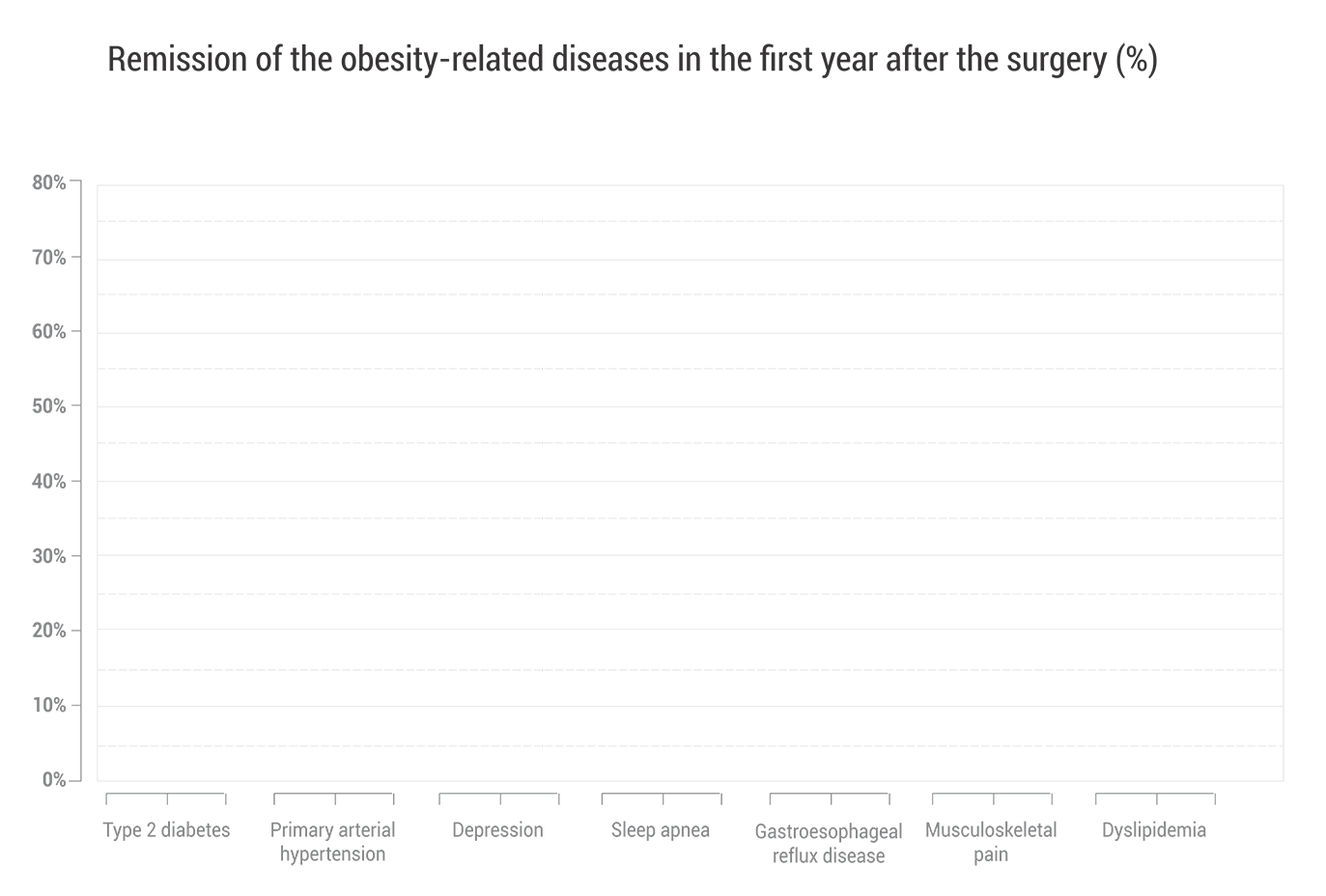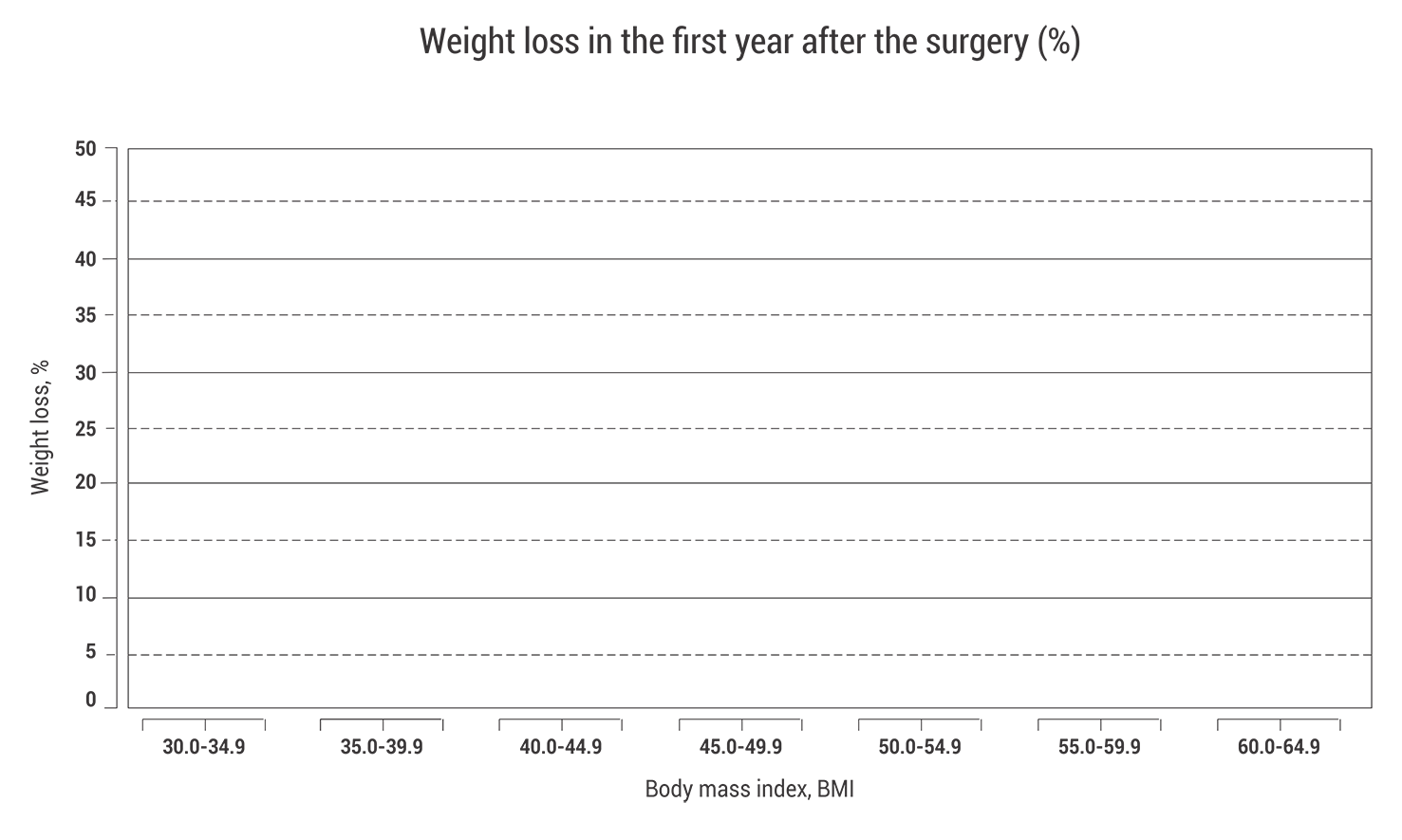Life after bariatric surgery
Day after surgery
41 year old patient, height 168 cm, weight 130 kg, BMI 46.1 (class 3 obesity), type 2 diabetes. After consulting a nutritionist and a psychologist, she is motivated for a new life. Lost 5 kg before surgery.One month after surgery
The patient has lost 10 kg, starts eating regular food in small portions. Gradually increases physical activities according to the physiotherapist's recommendations (long walks, swimming pool, etc.).Three months after surgery
Minus 23 kg (38%) of excess weight. The sugar level is normal for two months. Blood pressure has stabilised. Reduced waist size allows to dress in favourite clothes and to wonder why she hasn’t done the operation earlier?A year after surgery
The patient has lost 51 kg (85%) of excess weight. Sugar levels and diabetes are a thing of the past. Relationships in the family and intimate life have improved. The patient feels happy.Obesity is officially classified as a disease, not an aesthetic defect, and should be treated like any other health problem. Treatment of obesity continues even after gastric bypass surgery. To win the battle with excess weight, you must be motivated to change your attitude towards eating habits, physical activity, and lifestyle.
The main principles of nutrition after surgery
- 4-5 meals a day
- Smaller portion size
- Eating slowly and chewing food thoroughly
- Vitamin and mineral complexes (calcium, B12, vitamins D and A, iron)
- Protein-rich diet
- Food that is low in fat and sugar
A nutritionist develops an individual program for each patient to ensure that the body receives full amount and types of vitamins and minerals.
Physical activities
To acquire and strengthen the shape of body more successfully and to improve the health of the joints, an individual program of physical activities and training is developed together with the physiotherapist.
Monitoring by specialists
During the first year after the operation, it is important to do blood tests and meet with a nutritionist/ surgeon – in the first, third, sixth month, a year after the surgery, and then – once in a year.
Pregnancy
During the first two years after surgery, it is advisable to avoid pregnancy. Pregnancy in the postoperative period may complicate monitoring of the patient.
Smoking and alcohol
Smoking should be stopped at least 6 weeks before surgery. After surgery, smoking is not recommended, as it damages almost all organs, slows down healing process and reduces tissue blood supply. Bariatric surgery patients are advised to refrain from alcohol, because it is rich in calories, it is quickly absorbed after the operation, therefore, during the detoxification processes of the body, it creates an additional burden on the liver and kidneys, while removing the toxins created by alcohol from the body.


